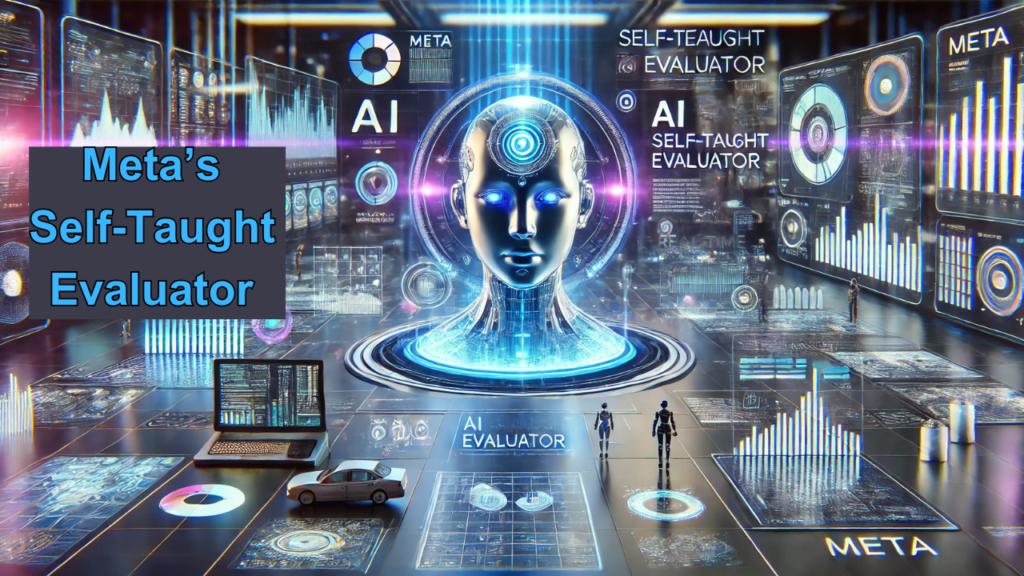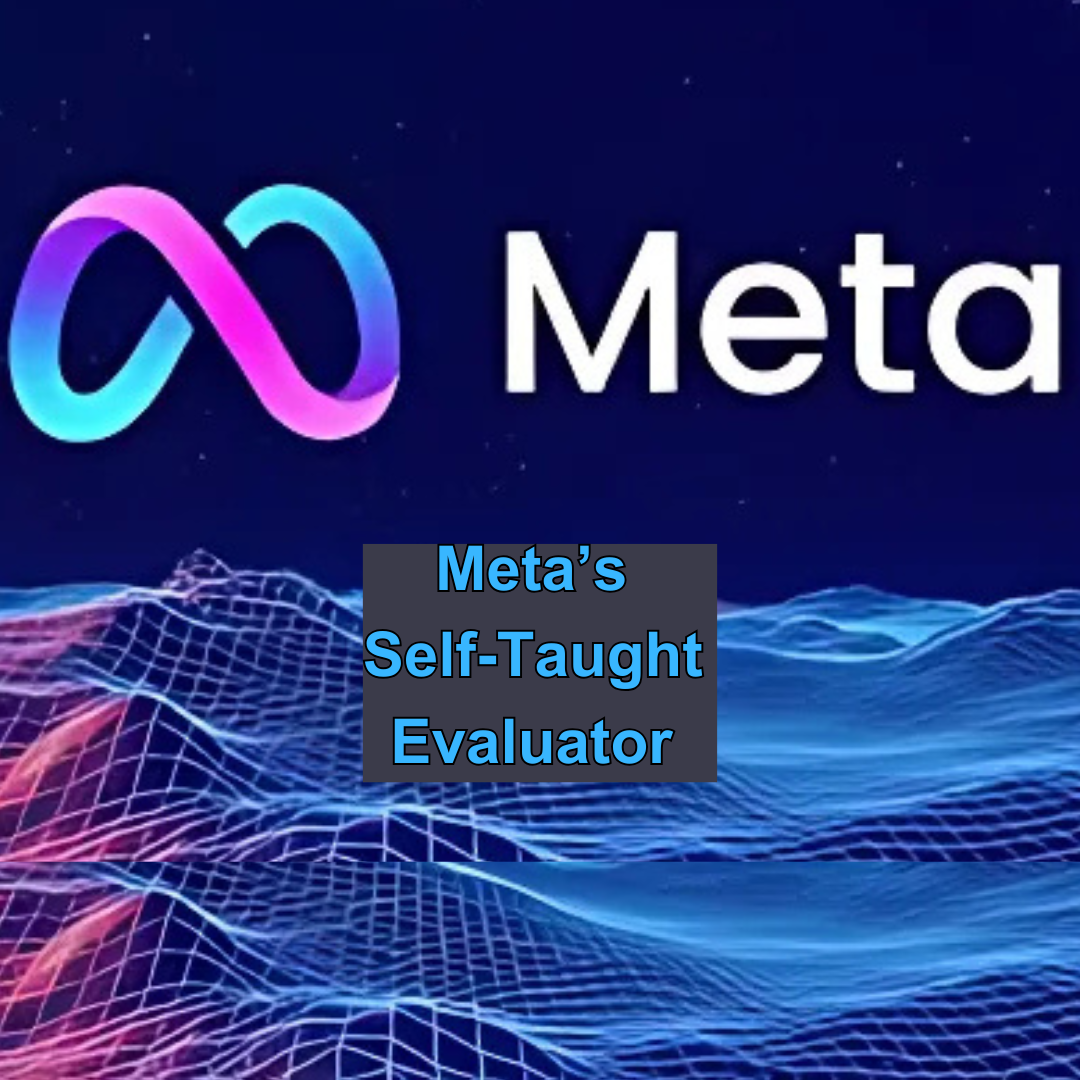Revolutionizing AI Training: Inside Meta’s Self-Taught Evaluator
Meta has introduced a new AI model known as the Self-Taught Evaluator, which is transforming how AI models are developed and refined. Traditionally, training and assessing AI models require extensive human feedback, which can be costly and time-consuming. Meta’s Self-Taught Evaluator eliminates this need by enabling AI to evaluate and improve itself autonomously, streamlining development processes and improving model accuracy without human intervention.

How the Self-Taught Evaluator Works
The Self-Taught Evaluator operates using a technique known as “Chain of Thought” reasoning. This method enables the AI to break down complex tasks into smaller steps and analyze each individually. By generating possible solutions and evaluating their accuracy, the model adjusts its internal parameters iteratively, achieving a closed-loop system of continuous self-improvement. This process also utilizes a large language model (LLM) as a “judge,” which reviews and scores AI-generated outputs based on their coherence and adherence to expected outcomes
A significant advantage of this self-teaching approach is that it generates its own synthetic training data rather than relying on human-labeled data, which can often lag behind the newest advancements. By using synthetic data, Meta’s Self-Taught Evaluator accelerates the training process, reduces costs, and enhances scalability. This model has shown particularly impressive results with Meta’s LLaMA 3 70B Instruct model, improving its benchmark accuracy from 75.4% to 88.7% on RewardBench, outperforming many models trained on human-labeled data.
Key Advantages of Meta’s Self-Taught Evaluator
- Reduced Human Bias: By eliminating human evaluators, the Self-Taught Evaluator minimizes subjective bias, which can often influence the training and performance of AI models. This makes it particularly valuable for applications in multilingual contexts, where cultural nuances may be challenging for human evaluators.
- Enhanced Speed and Efficiency: AI models trained with the Self-Taught Evaluator are not limited by the availability or speed of human feedback. This allows for real-time adjustments and significantly faster deployment times, which is crucial in industries where rapid innovation is essential.
- Autonomous Evaluation and Adaptation: The Self-Taught Evaluator enables AI to independently generate tasks, evaluate its progress, and adjust strategies, creating a dynamic and adaptive learning environment. This autonomous approach is highly valuable for AI tasks requiring consistent updates, such as content moderation, complex reasoning, and technical analysis.
BUY QUBO Smart 360 3MP 1296p WiFi CCTV Security Camera from Hero Group
Potential Applications Across Industries
Meta’s Self-Taught Evaluator is designed to handle diverse AI applications, with particularly promising results in fields requiring rigorous evaluation and reasoning. For instance:
- Content Moderation: With its autonomous evaluation capabilities, the Self-Taught Evaluator can streamline content moderation by assessing flagged material and adjusting its own standards to reflect new policy changes or cultural shifts.
- Scientific Research and Technical Analysis: The model’s ability to deconstruct and solve complex problems autonomously makes it well-suited for tasks such as data analysis in fields like genetics, pharmaceuticals, and materials science.
- Education and Skill Assessment: The model’s Chain of Thought reasoning could revolutionize skill assessments and personalized learning, where adaptive AI tutors adjust material based on individual performance metrics.
Also Read: AI in Tourism for Travel Influencers Benefits and Challenges
Expanding the Horizon: Meta’s Commitment to Autonomous AI
Meta’s development of the Self-Taught Evaluator aligns with its broader push toward autonomous AI systems capable of reducing human involvement across various processes. This includes recent advancements such as the Segment Anything Model (SAM), which automates image segmentation, and MetaLM, an open-source language model designed to generate contextually rich, emotive responses. Together, these innovations are setting the stage for fully autonomous, adaptive AI systems across diverse industries.
The Future of AI Training
Meta’s Self-Taught Evaluator could represent a pivotal shift toward AI models that are more self-sufficient, adaptable, and faster to deploy. By pushing the boundaries of traditional AI evaluation, Meta’s technology is paving the way for more efficient, cost-effective, and reliable AI systems that are less dependent on human oversight. This shift has the potential to transform sectors reliant on rapid, autonomous decision-making and model refinement.


2 thoughts on “Meta’s Self-Taught Evaluator: The Future of Autonomous AI”